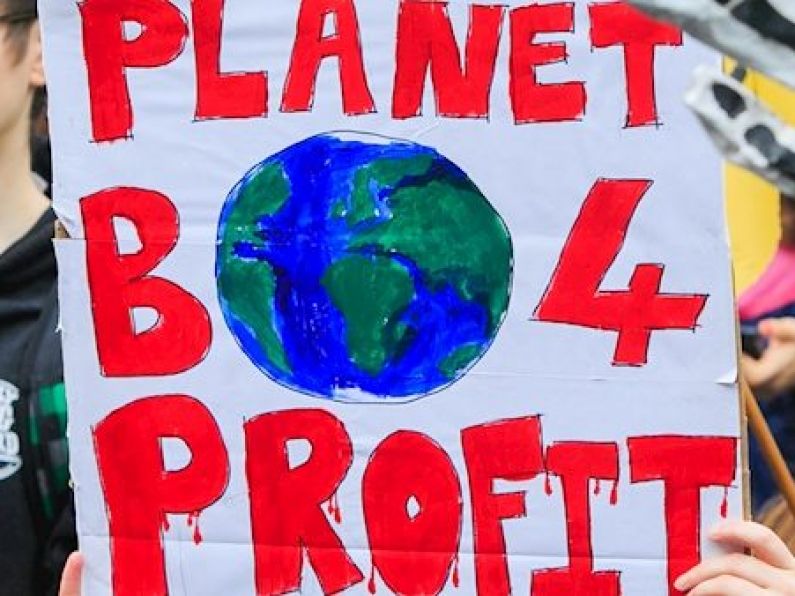Environmental activists are continuing their week of disruption in Dublin today with a protest outside Government Buildings just after the Minister for Finance Paschal Donohoe’s Budget photocall.
It is part of a global movement by Extinction Rebellion to put pressure on leaders to take urgent and radical action on climate change.
They will present their ‘Budget for Climate Justice’ in a short performance involving a fire breather, 30 animal characters and a student striker.
Yesterday, hundreds of protesters took over Merrion Square where they have set up camp for the week.
They say they are willing to be arrested for carrying out "non-violent acts civil disobedience".
A spokesperson for Extinction Rebellion said: "We call on the Government to put the future of all Irish families at the heart of policy making in Ireland.
"We need to ensure a more equitable future for all Irish citizens, both urban and rural, from struggling families facing fuel poverty to farming communities seeking a liveable wage for an honest day’s work."
- Extinction Rebellion's Budget for climate justice
- 1. Energy.A budget for climate justice must introduce meaningful measures to reduce fossil fuel emissions to net zero by 2030. The Government’s planned phasing out of oil exploration means nothing unless we switch to indigenous, renewable sources of electricity. Most urgently, plans for the development of liquid natural gas (LNG) terminals that would see the importing of fracked LNG from America must be scrapped. Building LNG terminals would lock Ireland into a dependence on imported fracked gas for the next 30 years, flooding the market with gas and pushing out the development of renewables.
- 2. Transport and the built environmentTo cut carbon emissions in a meaningful way, we must immediately implement the recommendations from the Irish Citizens Assembly. These include adequate funding for adaptation measures such as bus and cycling lanes and giving much greater priority to these modes of transport over private car use, with particular attention paid to rural areas. Extinction Rebellion also support the recommendation of the Joint Oireachtas Committee on Climate Action that citizens be supported in making the transition to lower carbon lifestyles. We want to see all of Ireland’s children able to walk and cycle safely to school by 2025. We want to see a transformed public transport system that free our cities from congestion without limiting peoples’ mobility and that increases mobility in rural Ireland.
- 3. Agriculture and natural climate solutionsExtinction Rebellion demand that Irish farmers be supported in transitioning away from practices that emit high levels of greenhouse gases and leave farmers vulnerable to exploitation by agri-business conglomerates. Financial and other supports must be made available to enable the diversification of Irish agriculture. We demand incentives for land management practices that protect and enhance biodiversity. We must reward practices that sequester carbon and restore habitats, such as the restoration of peatlands, maintenance of hedgerows and planting of native trees on a large scale.
- 4. A Just transition in global solidarityMost importantly of all, the changes listed above must all be made within a context of a ‘just transition’, both in Ireland and globally. As recommended by both the report of the Citizens Assembly and JOCCA, this means making proper provision for the protection of the rights of the workers impacted by the transition to a low carbon economy. Workers in carbon-intensive industries must have training and new employment available as fossil fuels are phased out. Extinction Rebellion call for the establishment of a Just Transition Task Force, supported by a Just Transition Fund, as recommended by the JOCCA report, to ensure the protection of vulnerable citizens, workers and communities. We demand that such a just transition is also considered within a global context. Our survival and success must not be bought at the expense of other people in other countries.






